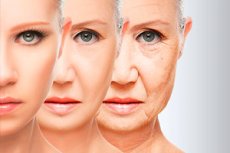Nye publikasjoner
Diskriminering er forbundet med raskere biologisk aldring
Sist anmeldt: 02.07.2025

Alt iLive-innhold blir gjennomgått med medisin eller faktisk kontrollert for å sikre så mye faktuell nøyaktighet som mulig.
Vi har strenge retningslinjer for innkjøp og kun kobling til anerkjente medieområder, akademiske forskningsinstitusjoner og, når det er mulig, medisinsk peer-evaluerte studier. Merk at tallene i parenteser ([1], [2], etc.) er klikkbare koblinger til disse studiene.
Hvis du føler at noe av innholdet vårt er unøyaktig, utdatert eller ellers tvilsomt, velg det og trykk Ctrl + Enter.

Diskriminering kan fremskynde de biologiske aldringsprosessene, ifølge en ny studie av forskere ved New York Universitys School of Global Public Health.
Studien knytter mellommenneskelig diskriminering til endringer på molekylært nivå, og avslører en potensiell underliggende årsak til forskjeller i aldersrelatert sykdom og dødelighet.
«Det å oppleve diskriminering ser ut til å akselerere aldringsprosessen, noe som kan bidra til sykdom og for tidlig dødelighet, noe som forverrer helseforskjeller», sa Adolfo Cuevas, førsteamanuensis i samfunns- og atferdsvitenskap ved New York Universitys School of Global Public Health og seniorforfatter av studien, publisert i tidsskriftet Brain, Behavior, and Immunity-Health.
Forskning viser at personer som opplever diskriminering basert på identitet (som rase, kjønn, vekt eller funksjonshemming) har økt risiko for en rekke helseproblemer, inkludert hjertesykdom, høyt blodtrykk og depresjon. Selv om de eksakte biologiske faktorene som forårsaker disse dårlige helseutfallene ikke er fullt ut forstått, er kronisk aktivering av kroppens stressrespons sannsynligvis en medvirkende faktor. Dessuten knytter en økende mengde forskning kronisk eksponering for diskriminering til de biologiske aldringsprosessene.
For å bedre forstå sammenhengen mellom diskriminering og aldring, undersøkte Cuevas og kolleger tre målinger av DNA-metylering, en markør som kan brukes til å vurdere de biologiske virkningene av stress og aldringsprosessen. Blodprøver og spørreundersøkelser ble samlet inn fra nesten 2000 amerikanske voksne som en del av Midlife in the United States (MIDUS)-studien, en longitudinell studie av helse og velvære finansiert av National Institute on Aging.
Deltakerne ble spurt om sine erfaringer med tre former for diskriminering: hverdagsdiskriminering, alvorlig diskriminering og diskriminering på arbeidsplassen. Dagligdagsdiskriminering refererer til subtile og mindre tilfeller av respektløshet i hverdagen, mens alvorlig diskriminering fokuserer på akutte og intense tilfeller av diskriminering (f.eks. fysiske trusler fra politiet). Diskriminering på arbeidsplassen omfatter urettferdig praksis, begrensede profesjonelle muligheter og identitetsbasert straff.
Forskerne fant at diskriminering var assosiert med akselerert biologisk aldring, der personer som rapporterte mer diskriminering aldret biologisk raskere enn de som opplevde mindre diskriminering. Daglig og alvorlig diskriminering var gjennomgående assosiert med biologisk aldring, mens eksponering for diskriminering på arbeidsplassen også var assosiert med akselerert aldring, men virkningen var relativt mindre alvorlig.
En dypere analyse fant at to helsefaktorer – røyking og kroppsmasseindeks – forklarte omtrent halvparten av sammenhengen mellom diskriminering og aldring, noe som tyder på at andre stressresponser på diskriminering, som forhøyet kortisol og dårlig søvn, bidrar til akselerert aldring.
«Selv om atferdshelsefaktorer delvis forklarer disse forskjellene, er det sannsynlig at en rekke prosesser påvirker sammenhengen mellom psykososiale stressfaktorer og biologisk aldring», sa Cuevas, som også er et sentralt fakultetsmedlem ved Center for Anti-Racism, Social Justice, and Public Health ved New York University School of Global Public Health.
I tillegg varierte sammenhengen mellom diskriminering og akselerert biologisk aldring etter rase. Svarte deltakere rapporterte flere diskrimineringsopplevelser og hadde en tendens til å ha høyere biologisk alder og raskere biologisk aldring. Hvite deltakere som rapporterte færre diskrimineringsopplevelser var imidlertid mer følsomme for effektene da de opplevde det, kanskje på grunn av mindre hyppig eksponering og færre mestringsstrategier. (Data for andre rasemessige og etniske grupper var ikke tilgjengelige i MIDUS-studien.)
Disse funnene understreker viktigheten av å bekjempe alle former for diskriminering for å støtte sunn aldring og fremme helsemessig likestilling.
